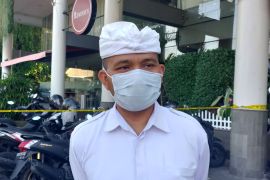Hong Kong (Antara Bali) - Chairman of the House of Representatives' (DPR's) Manpower Supervisory Team, Fahri Hamzah, is visiting Indonesian migrant workers (TKI) in Hong Kong to collect inputs on TKI issues.
"We want to meet TKI directly to obtain clear picture of TKI issues in Hong Kong. We are collecting inputs on TKIs beginning from the start of their trips in Indonesia, during their placement overseas until they return home again," Hamzah said in Hong Kong Saturday night.
The lawmaker is collecting inputs for the revision of Law No. 39 Year of 2004 on the Protection Indonesian Workers Abroad.
By clearly mapping the TKI issues, an effective protection system could be built for TKIs overseas.
"So far, coordination between the Manpower Ministry and the Agency for Placement and Protection of Indonesia Workers Overseas (BNP2TK) is still overlapping. Even it left the impression that they often abdicated their respective responsibilities, leading the TKIs to feel as if they received no attention during their placement abroad and return home," Hamzah said.
He said that the result of the mapping of the TKI issues in Hong Kong will become an input in the revision of Law No.39/2004. "So that, ahead, the protection system for TKIs abroad will become more effective."
On Saturday, the team visited a TKI lodging facility managed by the 'Dompet Dhuafa' institution and the consul general in Hong Kong.
During the visit, Hamzah and entourage were accompanied by the Indonesian Consul General in Hong Kong Tri Tharyat and held a dialog with the Dompet Dhuafa officials, volunteers and TKIs being accommodated in the lodging facility.
In the dialog, an Indonesian migrant worker from West Nusa Tenggara province said she was facing a legal case with the Hong Kong authorizes. She claimed to have been framed by her employer with a charge of stealing HK$1,000.
Another TKI said she suffered from a breast malignant tumor after working for five years in Hong Kong. Most of the problematic Indonesian migrant workers claimed to have no knowledge of Hong Kong's work regulations.
"This is an indication that many problems with regard to the TKI have taken place since they were in Indonesia, or since the beginning of their departure. Therefore, in the revision of the law, the obligation of governments to monitor their citizens is also included. It should not happen that the regional governments would not pay attention to their citizens working overseas," Hamzah said. (WDY)



